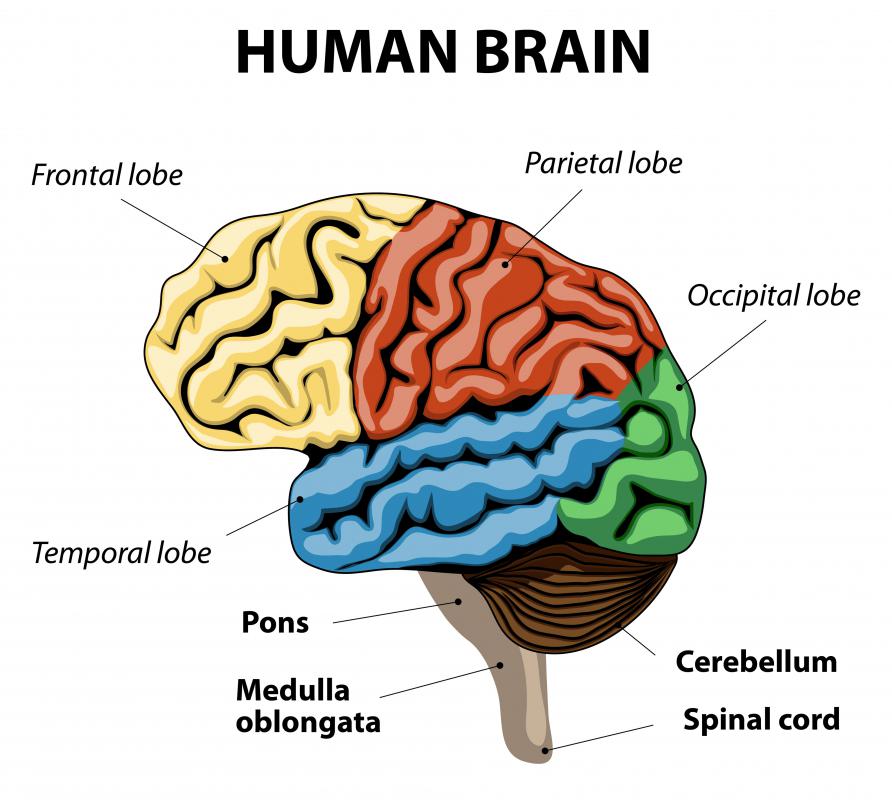At WiseGEEK, we're committed to delivering accurate, trustworthy information. Our expert-authored content is rigorously fact-checked and sourced from credible authorities. Discover how we uphold the highest standards in providing you with reliable knowledge.
What Is Akinetic Mutism?
Akinetic mutism describes a situation where a patient is alert but unable to move or talk. These symptoms are caused by brain damage, and the functioning of the rest of the body is unaffected. The brain damage can be caused by various issues such as infections, toxins, or degenerative brain disease. This condition is a symptom of a problem and not a disease in itself.
Brain signals control movement in the body, and when the cells and nerves in the brain are diseased, these signals can become interrupted. The patient's muscles are physically capable of moving his or her body and of making the movements necessary for speech, but the brain signals to do so are not getting through to the muscles. The person is completely aware of the surroundings but cannot perform the physical functions necessary to respond to stimuli.

Various parts of the brain are involved in the normal process of moving and talking. The frontal lobe, the basal ganglia, and the thalamus are some examples of the damaged areas that may cause akinetic mutism. When the frontal lobe is involved, the akinetic mutism is known as hyperpathic akinetic mutism, and when the mesencephalic region is damaged, the condition is called somnolent akinetic mutism. The mesencephalic region refers to an area of the midbrain, whereas the frontal lobes are located behind the forehead.

The brain is susceptible to damage from many causes. Akinetic mutism may be caused by toxins such as carbon monoxide or drugs. The condition can also result from infections from agents like multiple sclerosis or from swellings caused by diseases such as measles or HIV. Hydrocephalus, which is also known as water on the brain, a condition which can be present at birth or as a result of trauma, can be another cause.

Degenerative diseases like Creutzfeld-Jakob disease or other forms of dementia can also cause it. Tumors that affect the brain regions involved can also be a cause, as can trauma to the frontal lobes. Problems with the circulatory system supplying the brain, such as blood clots or hemorrhages, can also damage the brain.
Doctors diagnose the condition through magnetic resonance imaging techniques and may take cerebrospinal fluid samples to look for an infectious cause. Treatment involves treating the causal agent, and a patient may also receive medication to support brain signaling, such as a dopamine agonist. A patient with akinetic mutism shows symptoms that are similar to other recognized conditions, such as catatonia in psychiatric patients and locked-in state in paralysis patients, but it is a distinct medical condition.
AS FEATURED ON:
AS FEATURED ON:
















Discuss this Article
Post your comments